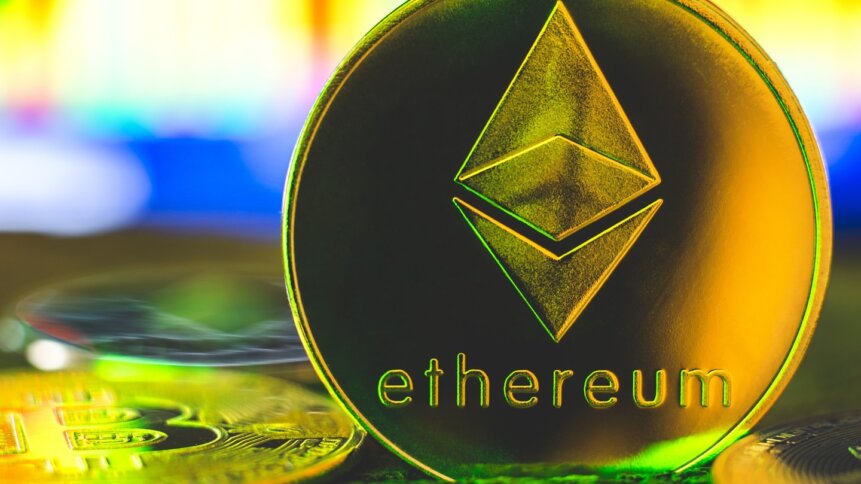Explain It To Your Boss: DeFi

What is DeFi?
DeFi stands for Decentralized Finance. What that means is that it’s a financial system unlike traditional banking. It uses open-source technology, doesn’t use permissions or gatekeeping, and aims at being an entirely transparent financial service ecosystem, based on applications that use public blockchain networks. Using these networks, DeFi can create new financial markets, products, and services.
Why is DeFi a good option – and for whom?
In the event that you’re isolated from traditional financial systems, with their gatekeepers in the form of old-style banking behemoths, DeFi is a way you can work around those obstacles and still get the financing you need – while still being entirely within the law.
DeFi applications don’t use intermediaries, gatekeepers, or arbitrators. You as the user keep complete control of your assets at all times. Any potential issues or conflicts are resolved by specifications in the code of the blockchain networks, which means any resolutions are fast, drama-free, and comparatively straightforward. It also means you’re not paying traditional banks their traditional fees to be allowed to live, breathe, and trade.
If you’re an SMB startup, DeFi can make things easier for you by removing not only the fees but the levels of gatekeeping bureaucracy of traditional banking. Traditional banking systems involve every player in the chain between you and your assets making a profit. As such, they make it more difficult that it arguably should be to raise finance when you need it, and to raise as much as you need. Lower-income communities are blocked from accessing the kind of traditional banking they need to deliver effective startups and businesses as a result.
With DeFi, those restrictions aren’t there, so lower-income communities can get the finance – and the services – they need through the application of technology to finance.
What Can I Use DeFi For?
You can use DeFi for a wide range of financial functions.
Standard Lending and Borrowing
This sounds obvious, but one of the main reasons people use financial products is to raise money through borrowing. That holds true in DeFi too. Of particular use in DeFi, there are no credit checks to your borrowing – which, again, can be extremely useful for people wanting to start up businesses in low-credit areas, or if they personally have a poor credit history that bars them from using traditional banks to get the capital they need.
You can also get instant transaction settlement through DeFi, which is useful if your business exists from paycheck to paycheck.
In case that sounds like a madhouse of risk, it’s worth remembering that the system is underpinned by cryptographic verification methods. A lot more is put in the hands of comparatively foolproof, unbribable, systems, so you can do more with less overt human involvement or scrutiny.
Monetary Banking Services
Naturally, you can use DeFi to deliver technological equivalents of standard banking services. Mortgages, insurance, the issuing of stablecoins (or cash, as it’s also sometimes known) are all available through DeFi. Stablecoins are technically crypto-assets, but they’re pegged to real world assets. Stablecoins are just an easy way of transferring the value of real-world assets, so obviously, stablecoin collateral for things like mortgages is linked to real world assets, but with DeFi, the whole process of using those assets as security for instance is made a lot more streamlined by technology, and by taking out the traditional banking middle-managers.
Using the likes of smart contracts (contracts that are essentially pieces of computer code that govern the behavior of resources automatically), the whole process of standard banking services can be sped up and made more straightforward than the long, often complex, often heart-aching and hassle-rich experience it can be in traditional banking structures.
Similarly, getting insurance on the blockchain allows for the much wider distribution of risk. And the wider you can distribute your risk, the lower your premiums should be.
Decentralized Exchanges
Decentralized exchanges allow you to trade digital assets without needing any trusted human intermediary. Trades are made directly between buyer and seller user wallets, and they’re made fast and simple by the use of smart contracts.
Again, decentralized exchanges bring the benefits of simplicity and speed, but also allow you to buy and sell with significantly lower transaction fees than you’d accrue if you used traditional banks or exchanges.
Because you’re using blockchain technology, you can still use traditional financial instruments, but as with all the other uses of DeFi so far, you cut out custodians, gatekeepers – and at least most of the fees.
Optimization of Yield
If your business involves staking, reward pools, and other interest-bearing products, DeFi lets you optimize the yields you can get from those activities. For instance, if you’re a Bitcoin miner, you can use a smart contract to take any rewards you reap and plow them into more of your underlying asset, almost automating the cycle for you, without you having to tediously move assets from place to place and both wait and pay for the privilege, as you would through traditional banks and marketplaces.
Is DeFi Safe?
It’s arguable that DeFi is the application of new technology to an old problem, and that the solutions it creates are actually safer than those that exist with traditional banks.
The financial services of DeFi are laid on top of blockchains. The data of any transaction is recorded on the blockchain and distributed across thousands of nodes. That means it’s significantly more difficult to engineer a single-point-of failure, like a potential service shutdown, than it would be in traditional banking systems, which are frequently focused on single physical locations, or systems that are centrally located.
That said, there are some things to understand before you jump into DeFi with both feet.
Crypto Loans
Whereas in traditional banking, you have the security of a banking establishment and its diversified risk portfolio behind you, if you take out crypto loans, you gamble on the counterparty faithfully repaying their debt. There’s a risk that they won’t do so, in which case you can lose your assets.
Legal Issues
The legality of services can be difficult to determine, so if you invest in a smart contract and it gets shut down as illegal or suspect, your assets can either be frozen indefinitely, or lost for good.
Token Risk
When the assets you hold have different risk levels associated with them – which they will have, in the same way a stock portfolio will contain stocks with different risk levels – you risk token devaluation or crash.
Software Issues
Where you may be more vulnerable with DeFi than with traditional banking is in the area of code vulnerabilities. Such vulnerabilities can weaken the security of your smart contracts and lay you open to more risk than you anticipated. You can also compromise your wallet in some cases by giving DeFi apps too many permissions.
So Should I Use DeFi Or Not?
Yes. And no. If you struggle with traditional banking and finance, if you need to circumvent the bureaucracy of traditional infrastructures, or if you want faster banking services with fewer credit checks and lower fees, then DeFi has something to offer you. It is not, and should not be treated as, a techno-banking panacea for anyone with wild ideas and nothing else besides, but it can offer distinct advantages of higher speed, greater security, lower fees and less bureaucracy than many centralized financial structures.










